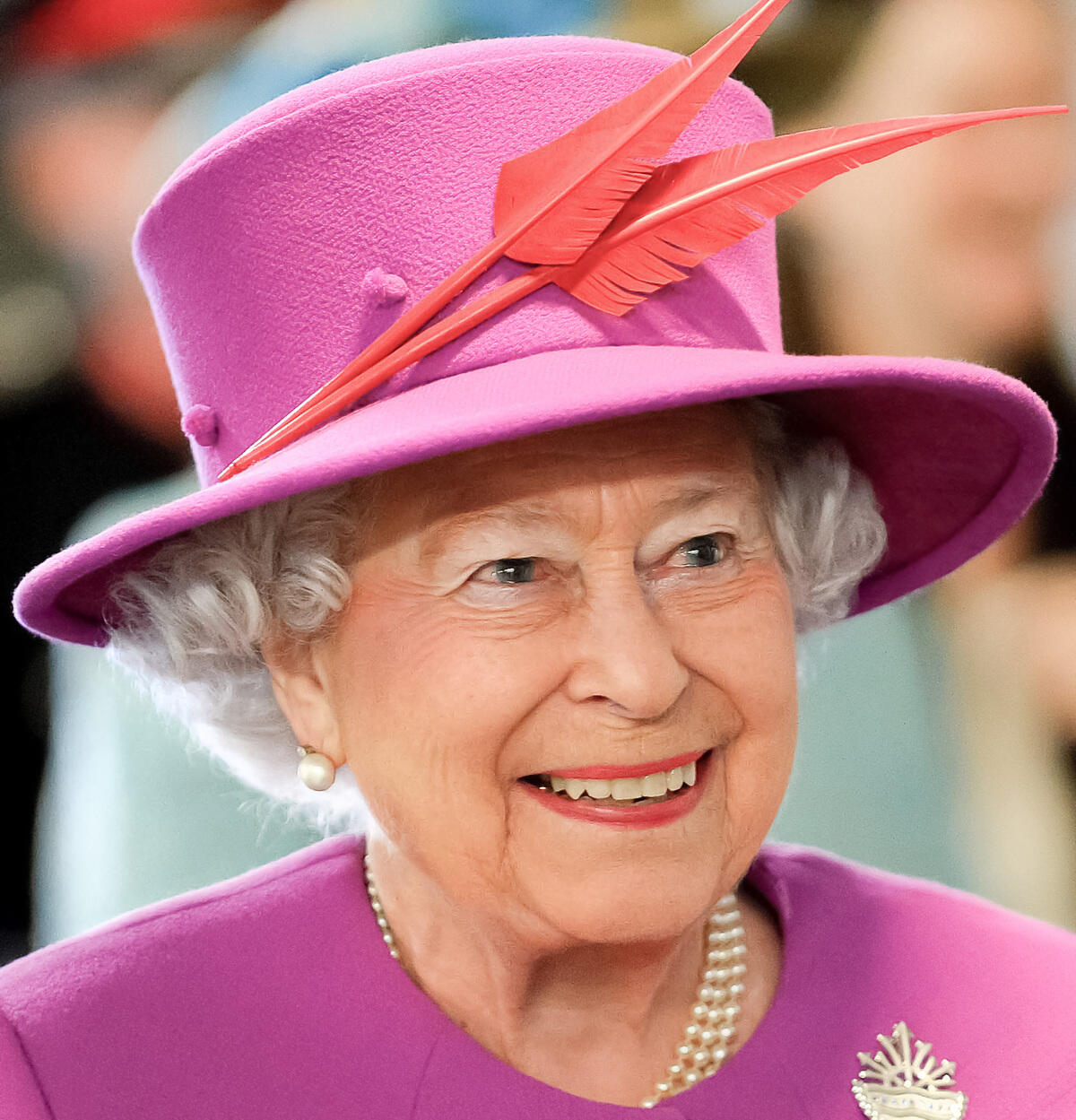
Sept. 12, 2022
Historian reflects on Queen Elizabeth II and the longest reign in the British monarchy
Share this story
Ruling from 1952 until her death on Sept. 8, 2022, Queen Elizabeth II was the longest-reigning monarch in British history, surpassing the reign of her great-great-grandmother, Queen Victoria, who spent 63 years on the throne between 1837 and 1901. At her death, Victoria was not only Queen of Great Britain but also held the title “Empress of India” — despite never stepping foot on the Indian subcontinent.
While Victoria’s reign was marked by the dramatic expansion of Britain’s overseas empire, the 70-year reign of her great-great-granddaughter, Elizabeth, witnessed the British Empire’s dissolution.
“Queen Elizabeth and the 1,000-year-old institution she embodied offered continuity and reassurance in a rapidly changing world,” said Brooke Newman, Ph.D., associate professor in the Virginia Commonwealth University College of Humanities and Sciences' Department of History.

Newman is a historian of early modern Britain and the British Atlantic, with current special interest in the history of slavery, the abolition movement and the British royal family. Her upcoming book, “The Queen’s Silence: The Hidden History of the British Monarchy and Slavery,” is the first to chronicle the evolving policies and attitudes of the British Crown and prominent members of the royal family toward African slave trading, enslavement and racial exploitation, from the reign of Elizabeth I to the reign of Queen Victoria. It blends groundbreaking archival research with narrative synthesis to offer the first full account of the British monarchy and slavery covering over 450 years. Aimed at general readers, the book will be released in late 2024 or early 2025.
Newman spoke with VCU News about the past and future of the British monarchy.
The world has changed so much over the past 70 years. How has the monarchy changed during this time? How did Queen Elizabeth herself change during her reign?
Elizabeth acceded to the throne during the postwar era and as Britain’s once-extensive overseas empire was shrinking in the wake of hard-fought independence movements. Her coronation in 1953, which was steeped in imperial symbolism, was the first to be televised, and it was a grand event watched by viewers around the world. Held at arms-length during the reign of her father, George VI (1936-1952), the media became increasingly more invasive and less deferential to the royal family in the decades after Elizabeth took the throne.
On the one hand, Queen Elizabeth and the 1,000-year-old institution she embodied offered continuity and reassurance in a rapidly changing world. Through seven decades of social and political upheaval, the queen remained a steadfast, seemingly timeless figure; a national symbol of duty, longevity and resilience. On the other hand, the monarchy, with its lavish, archaic customs and millennium’s worth of inherited wealth and privilege, often appeared outmoded and even wasteful, particularly during periods of economic crisis and austerity. To ensure the institution’s survival, Queen Elizabeth was forced to adapt and, at times, to bend to public pressure. For example, after a fire ravaged Windsor Castle in 1992, the British public protested having to pay millions of pounds for its repair. The queen broke with legal and royal tradition and voluntarily agreed to pay taxes.

What will she most be remembered for?
Tight-lipped and inscrutable throughout her reign, Queen Elizabeth stood apart from the rest of the royal family, commanding a level of respect and reverence that her successor, Prince Charles, is unlikely to attain, either at home or abroad. She will be remembered as a stoic and dignified fixture of British life and a symbol of national unity. Still, despite her iconic status, the queen was not universally beloved. Head of an ancient institution whose privileges are hereditary, she never acknowledged or apologized for her ancestors' role in the brutal oppression and enslavement of colonized peoples across the globe. Nor did she speak out against the violent acts done in her name during her lifetime — the brutal suppression of the Mau Mau uprising in Kenya, for instance.
How will Charles' reign be different?
At age 73, Charles III is the oldest monarch to ascend the throne; he’s spent his entire life waiting in the wings. Compared to his mother, Charles’s reign will be necessarily short-lived and less impactful. Charles has also become king at a moment when support for the monarchy is waning, particularly among young Britons, and as more Commonwealth Realms consider cutting ties with the monarchy following the queen’s death. With the U.K. facing unprecedented crises — spiraling post-Brexit inflation, the ongoing disruptions of the Covid-19 pandemic and war in Ukraine, climate change and mounting inequality — whether Britain’s new king can provide the same symbolic power and steadying influence as his mother is doubtful.
What can we expect from King Charles?
Charles will need to tread carefully to appear politically neutral and not overstep the bounds of his position as a constitutional monarch — a skill his mother perfected over her seven decades on the throne. Yet, as the longest-serving heir apparent in British history, Charles has already spent a lifetime in the public eye; he’s acquired a reputation as one of the most outspoken and controversial members of the royal family. As Prince of Wales, he repeatedly attempted to influence government policy, became embroiled in controversies over donations to his charities, and lost public esteem as a result of the messy public breakdown of his marriage to Princess Diana, recently rehashed for global audiences on Netflix’s “The Crown.” As scrutiny of King Charles intensifies, I expect we will see him adopt a new tone and take a step back from the causes he has long championed, such as fighting climate change.
You recently wrote an op-ed column about the monarchy's role in the international slave trade. Was slavery itself practiced as much in Britain as it was in the U.S.?
Though there were small numbers of enslaved Africans in Britain as early as the 16th century, Africans and people of African descent were primarily enslaved in Britain’s Atlantic empire. Between 1525 and 1866, approximately 12.5 million Africans were transported across the Atlantic and sold into slavery in the Caribbean, South America and North America. British ships alone carried an estimated 3.4 million African captives to the Americas between 1640 and 1807; of this number, roughly 2.9 million survived the Middle Passage and disembarked in New World destinations — overwhelmingly in the Caribbean colonies. During this era, millions of Africans lost their freedom, kinship networks, bodily autonomy and lives to meet Europeans' insatiable demand for slave-produced sugar and other New World agricultural products.
The title of that column is ‘The Royal Family should apologise for their links to slavery before they are embarrassed into doing so.’ Given all the embarrassing scandals the family has weathered, do you think this will happen?
Certainly not any time soon. As heir apparent, Prince Charles admitted that slavery had tarnished Britain’s relations with its former colonies, but he did not apologize or attempt to make amends for that shameful history on behalf of the Crown or the British people. Now that he is king, Charles III and the rest of “The Firm” will be intensely focused on managing the transition following the queen’s death and keeping the institution of the monarchy intact. But as Britain attempts to redefine its place in the world during the post-Brexit, post-Elizabethan age, it’s highly probable we will see continued calls in the U.K. and across the Commonwealth for Charles and his successors to face a long overdue reckoning about the history and continued legacies of colonialism and slavery.
Subscribe to VCU News
Subscribe to VCU News at newsletter.vcu.edu and receive a selection of stories, videos, photos, news clips and event listings in your inbox.







